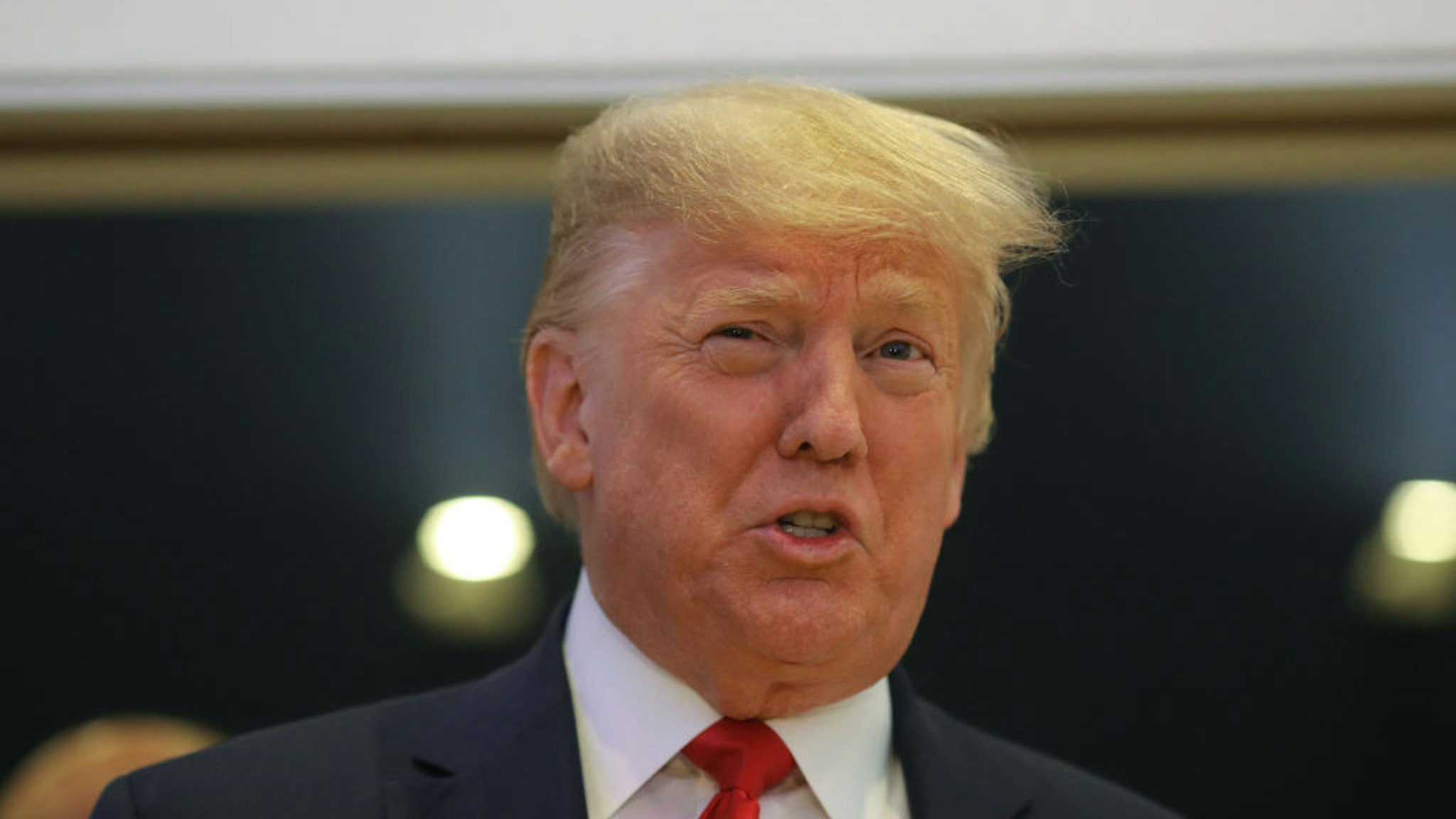With impeachment dominating everything from news headlines to dinner conversations to the halls of Congress, America’s most vital international relationships are easily lost in the shuffle.
It starts with Ukraine, the foreign country at the center of the scandal. The impeachment proceedings place U.S. ties with Ukraine and President Volodymyr Zelensky — a man elected by the Ukrainian people to help solve the country’s deadly conflict with Russia and to deliver what some call a “revolution of dignity” — in a perilous position.
The much-discussed call between President Donald Trump and Zelensky has become famous not for the world leaders’ conversation on a diplomatic roadmap featuring defense and energy collaboration, but rather on the alleged quid pro quo that sparked the impeachment inquiry.
For Ukraine, the allegations are harmful, at best, and disastrous, at worst. The young post-Soviet state depends on a $400 million annual aid package from the U.S. in order to defend itself against Russia, which in 2014 annexed Crimea in defiance of international law. Yet at this time, when Ukraine remains highly vulnerable to Russian intervention, Kiev’s allies in Washington are engulfed by the continued fallout of the Trump-Zelensky call.
In fact, American support for Ukraine is part of a longer-term strategy. Since the fall of the Soviet Union in the early 1990s, the U.S. has supplied foreign aid to Ukraine in hopes of fostering pro-Western political and military ties — and it has worked. When Russia annexed Crimea, the U.S. swiftly sanctioned Russia and increased its military backing of Ukraine.
Now, American assistance to Ukraine has transformed into a political football. Trump initially withheld military aid funds, for example, ahead of his call with Zelensky — though they have long since been delivered. Ultimately, any threat to these bilateral relations could simultaneously erode Ukraine’s independence and undercut Washington’s strategic objectives in its ongoing rivalry with Moscow. On the latter issue, one of the most vital aspects of American-Ukrainian diplomatic relations is energy independence. Ukraine and another U.S. ally in the region, Azerbaijan, are studying the possible expansion of the Azerbaijani-led Southern Gas Corridor initiative, which bypasses Russia and promises to diversify the gas supplies available to Europe.
“Ukraine supports the implementation of the Southern Gas Corridor project,” Zelensky told the press following a meeting with Azerbaijani President Ilham Aliyev in Baku last month. “We have agreed to consider its expansion. This is an important factor in the diversification of the gas supply to European consumers.”
America’s strategic ties in the region also bring to light the moral compass of U.S. foreign policy. In particular, it is incumbent upon the U.S. to be consistent in its treatment of post-Soviet separatist conflicts, as well as to respect the territorial integrity of all post-Soviet states and regions. This priority spans from Ukraine to Azerbaijan and from Crimea to Nagorno-Karabakh, the territory which is the source of the decades-long conflict between Armenia and Azerbaijan. Armenia carries out an ongoing, illegal occupation of Nagorno-Karabakh and seven other adjacent regions of Azerbaijan — in violation of several U.N. resolutions as well as the U.S. State Department policy that “supports the territorial integrity of Azerbaijan.”
At the same time, some of the most vocal congressional advocates for impeachment over the Ukraine allegations — Reps. Adam Schiff (D-CA), Jackie Speier (D-CA), Frank Pallone (D-NJ), and Brad Sherman (D-CA) — are among Capitol Hill’s leading backers of the Armenian occupation of Nagorno-Karabakh.
Ukraine and Azerbaijan have also consistently supported one another on the issues of restoring sovereignty and territorial integrity within internationally recognized borders.
“Our relations withstood the tests of time,” Zelensky said in a separate statement to the media last month. “We have always helped one another in difficult moments, very difficult moments of modern history. So, Azerbaijan has been, is and will be a reliable friend for Ukraine, and I am sure that it will be a strategic partner.”
Russia and Armenia — the respective occupiers of internationally recognized Ukrainian and Azerbaijani territories — also have their own foundational strategic relationships. Yet they maintain those alliances with a number of adversaries of the U.S. and rogue states, such as Iran, Nicaragua, Sudan, Syria, and Venezuela.
As a world power, America has a responsibility to stand up not only for its own strategic interests, but also for the broad principles of sovereignty and respect for nations’ internationally recognized lands. All-consuming episodes likes impeachment, however, threaten to disrupt the balance and direction of U.S. policy. Rather than succumbing to its domestic polarization, America must prioritize the strategic relationships that will outlive the Trump era.
Maayan Hoffman is news editor and head of online content and strategy at The Jerusalem Post. She has been an American-Israeli international journalist for more than two decades.

